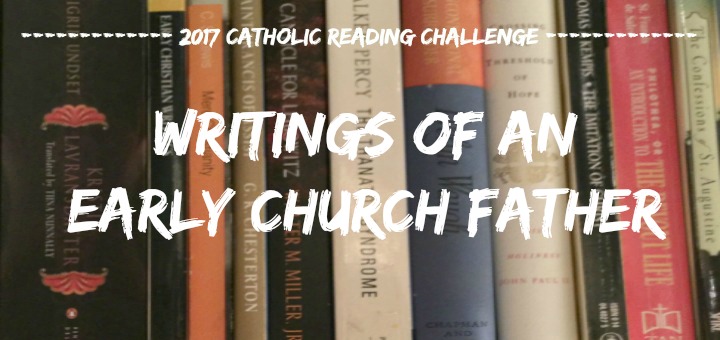
Today is Thanksgiving, and I’ve spent the week reading stacks of seasonally-themed picture books with my kids: books about Thanksgiving meal gathering traditions, funny books about turkeys, the history of the first Thanksgiving of the Pilgrims, and the story of Sarah Hale — who we have to thank (no pun intended) for our national day of celebration.
But today, for us Catholics, it is also another important feasting day; it is the memorial of St. Cecilia, a martyr of the third-century Church.
If you don’t know her story, she was sentenced to death by suffocation in the scalding hot steam of the baths, but she was unharmed after being locked up in them overnight. The second attempt to execute her was decapitation; but the executioner could not cut off her head, despite three hacks at her neck, and she was left bleeding to die. She lived for three days more. Her body was exhumed in 1599 and found to be incorrupt. Read her whole story; it is powerful…..but…not really the kind of “happy” tale that would typically come up today around your dinner tables.
But maybe it shouldn’t be weird if it did.
Perhaps our holiday celebrations have become commercialized and stylized to the point that we are totally disconnected from the weight of their origin. It might be a trite reflection to simplistically connect the these two feast days by emphasizing that we get to live in a country where we aren’t martyred for our faith, a country that brought the Pilgrims here in the first place to have a chance to worship and practice their faith freely. While that is true, I think that such a statement by itself still removes us a bit from the reality that we are memorializing.
These holidays and holy days — be they national or religious — exist because of real people and for profound reasons, of which we should not lose sight amidst all of our traditions. Our intentional celebrations are important. We shouldn’t forget or avoid remembering the harsh challenges that people faced, because it is the surmounting of those circumstances that brought about the events we celebrate — whether it be a people group that avoided starvation and settled a colony in the New World or a saint that exhibited impenetrable faith and won her heavenly reward.
Material icons often overtake the holidays’ greater significance: turkey plates for Thanksgiving, blow-up Santas for Christmas, Peeps in baskets for Easter. You know what I mean. I’m all about decorations, but decorations are not all these days are about.
As I sit with my kids and a stack of books, I’m not saying don’t read the silly one about the turkey; I’m saying read the hard one too. Tell the difficult story. These were real people, and their stories and circumstances deserve an empathetic response. These holidays and celebrations require us to enter into the stories of real people in history and see them as part of our own.
Copyright 2018 Jessica Ptomey


![By Internet Archive Book Images [No restrictions], via Wikimedia Commons](https://jessicaptomey.files.wordpress.com/2016/08/the_saints_in_art_-_with_their_attributes_and_symbols_alphabetically_arranged_1908_14778712544.jpg?w=182)